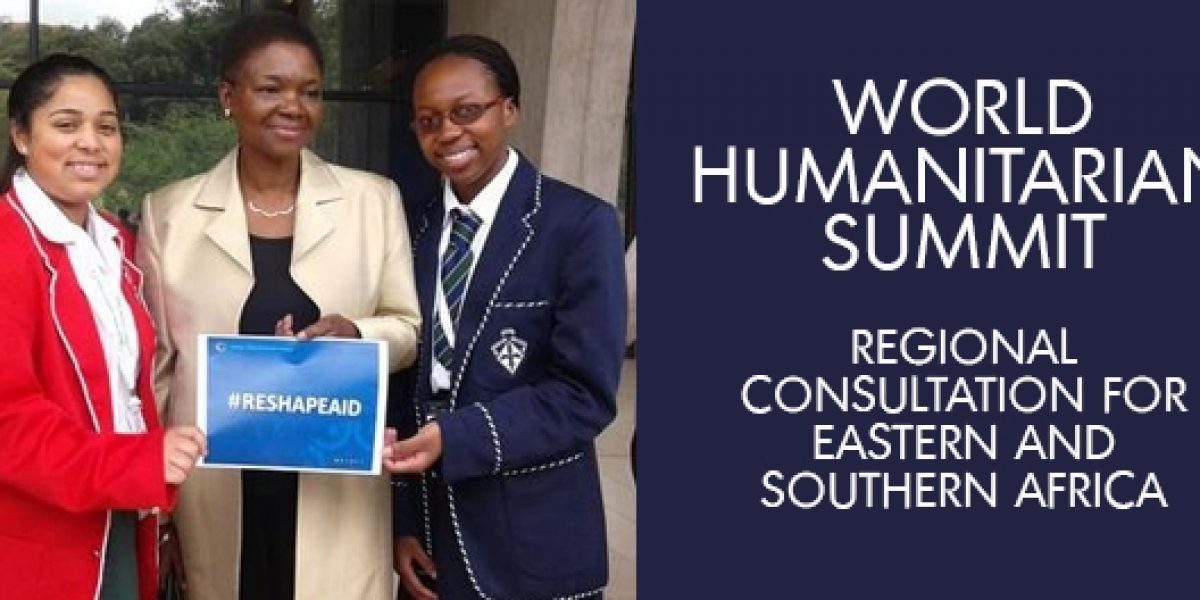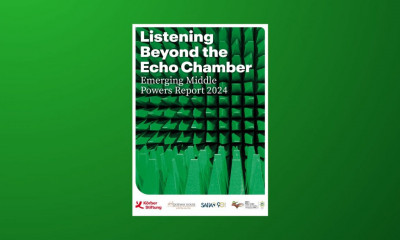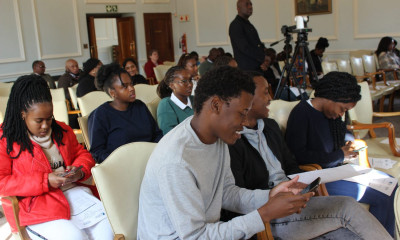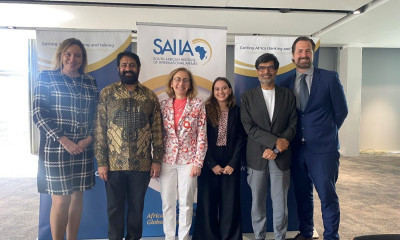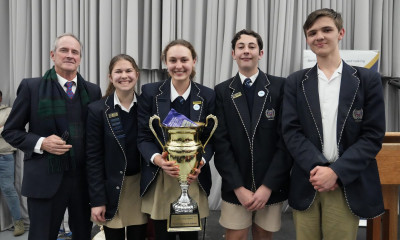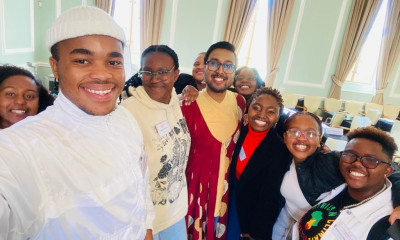“The voice of the youth is seldom included in higher level negotiations. This is largely due to the fact that the input of youth is often not recognised for the impact which it can have on negotiations,” says Maryam Elgoni, who was one of six Youth@SAIIA delegates at the summit.
“The experience was second to none. From meeting and socializing with the diplomatic elite to exchanging innovative proposals and concepts, the youth delegation from SAIIA were able to make the mark on the global platform.”
Learn more about SAIIA’s youth programmes, collectively called Youth@SAIIA.
The SAIIA youth delegation were among 200 delegates participating in the Regional Consultation for Eastern and Southern Africa, held in Pretoria on 27-29 October 2014. The results of this consultation will feed into the first-ever global World Humanitarian Summit in 2016.
This was the third of eight such regional consultations. A similar session was held for West and Central Africa in June, and for North and South-East Asia in July.
The youth delegation from SAIIA was represented by Nafeesa Noor Mahomed of Greenside High School; Joyce Bongongo of Pretoria High School for Girls; Janet Kachinga and Kenneth Diole from the University of Pretoria; Maryam Elgoni from the University of the Witwatersrand; and Luanda Mpungose from the University of Johannesburg.
Ms Elgoni presented the youth’s closing statement at the Consultation, in which she pledged the commitment of young people in the continent to particularly uphold aspects of the resolutions focusing on the role of youth in humanitarian affairs.
Her delegation’s recommendations were incorporated into the summary report from the Consultation, calling on stakeholders to support the youth in educating and sensitising their peers on the importance of non-violence and respect for women and girls. They also called for the building of linkages between governments, humanitarian agencies and youth networks to explore practical ways that youth can support humanitarian and development agendas.
Ms Elgoni says: “The issue of humanitarian aid is often one which is perceived exclusively to be a top-down process, with little consideration given to the grassroots mechanisms necessary for successful and effective distribution of aid. The youth form an integral part of this grassroots community, which increasingly demands attention from the global machinery which affects it.”
“We were able to form a part of both the logistical team and the negotiation process, which enriched us two-fold. Not only were we able to understand all the work and effort that goes in behind the scenes, we were further able to listen to ideas and offer the suggestions of the youth, which were recognized in the Co-chair’s summary under the 12th point.”
The lessons learnt from this Consultation will be further discussed in Youth@SAIIA’s new Youth Policy Committee.
In a video address to the Consultation, the UN Secretary General, Ban Ki-moon, told delegates that the goal of the World Humanitarian Summit would be to find “new ways to tackle humanitarian needs in our fast-changing world… We need your input to identify and share solutions to our most pressing humanitarian challenges.”
He added that the upcoming global Summit will focus on humanitarian effectiveness, reducing vulnerability and managing risk, transformation through innovation, and serving the needs of people in conflict. This three-year initiative is being managed by UN Office for the Coordination of Humanitarian Affairs (OCHA).
UN Under-Secretary-General for Humanitarian Affairs and Emergency Relief Coordinator, Ms Valerie Amos – responsible for the oversight of all emergencies requiring United Nations humanitarian assistance – told the Consultation that “humanitarian needs around the world are growing as a result of conflicts, natural disasters and other factors. South Africa has the resources and capacity to be a key player in humanitarian assistance on the continent.”
Ms Amos also acts as the central focal point for governmental, intergovernmental and non-governmental relief activities.
Participants expressed the sentiment that this Consultation constituted not the end of the region’s engagement with the World Humanitarian Summit, but the beginning. The details of the summit’s recommendations and report can be found on www.worldhumanitariansummit.org.

